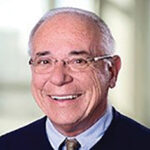
Olympic Diving, Degrees of Difficulty and the Most Difficult Dive of All
Last summer during the delayed Summer Olympics, one of the events that stood out to me most was diving. I like all the events but I pay close attention to the diving competition because of its elegance and strategy. Since each dive has a degree of difficulty, one’s risk is rewarded if it’s successful. The more difficult the dive, the greater the reward when it’s performed well.
The most difficult dive to perform, for the record, is the reverse 1½ somersault with 4½ twists off the 3-meter board. It has a 3.7 degree of difficulty.
But in the sport of life, how does that dive compare to other “dives?”
Well, it’s May and it’s Mother’s Day, so I’m writing to celebrate every mother on this holiday. Moms deserve accolades, praise and celebration. I know that’s true for my mom, my mother-in-law, my wife, Sue, and my daughter, Megan, and, as readers, I know you are thinking the same thing for every mom you know, including yourself.
To me, the most difficult dives executed in life are by mothers who work full time and are studying to earn a degree in college or community college. That’s similar to 1½ somersaults with 4½ twists.
According to information from the National Center for Education Statistics study, over 22 percent of all undergraduates are parents. Of the 20 million college students in the U.S. enrolled during the 2019-2020 academic year, about 4.3 million are raising a child. If you break this down further, of those 4.3 million “student parents,” 70 percent are mothers, and 62 percent of them are single mothers. These moms, or student parents, are often a bit older than most traditional students who attend college directly out of high school, and they bring perspectives from their life and work experiences that enrich the instructors and classmates.
By now I hope you’re convinced that performing the student parent dive is more than a 3.7 degree of difficulty. This study also shows that on top of raising children, over 44 percent of student parents work a full-time job and get better grades than their peers.
Let’s hear it for this amazing group of student mothers! Bravo to all of them and the dives they are doing for their children, themselves and their futures.
But many of these divers stop competing. A report by the United States Government Accountability Office indicates that 52 percent of the 4.3 million student parents drop out before they earn the AA, BA or certification that would earn each of them a family-sustaining income.
Dropping out happens for a variety of reasons but the two most prevalent are the lack of time to study and the costs and complexities of childcare. Today’s system of higher education is mostly a one-size-fits-all delivery focused on the 80 percent of college students who start higher education as childless students right out of high school. That presents challenges for the 4.3 million parents who are seeking a degree.
We can change that here with our wonderful higher ed options. We can help our Olympic divers–our student parents–get the gold medals they seek and deserve. Those medals come in the form of AAs, BAs and certifications that create family-sustaining incomes.
Here are some options that make sense. Use some of the one-time COVID relief funds to support these student parents. Create on-campus childcare programs at Delta, Cal State Stanislaus, Humphreys and Pacific. Explore implementing the U.S. Department of Education’s Child Care Access Means Parents in School Program that provides students with funds for childcare. Help create safe and high-quality options for parents to have childcare in the evening. Encourage our local programs to offer more flexible course deliveries such as online, four-week classes, one-subject-at-a-time programs, competency-based and work-based credit.
This Mother’s Day 2022, let’s celebrate our student moms and give them more of the support they need to turn their dreams into realities. The dive shouldn’t be that hard.
By: Don Shalvey
Dr. Don Shalvey is the CEO of San Joaquin A+. He is widely recognized as an innovative leader in public education. Don’s career includes roles as a teacher and principal, ten years as superintendent in San Carlos, founding both California’s first charter school and Aspire Public Schools, and 11 years as a deputy director for K-12 education at the Bill & Melinda Gates Foundation. Dr. Shalvey is a frequent advisor to policy makers and school system leaders. The prestigious Ashoka Foundation recognized Don as a Fellow for his outstanding work as a social entrepreneur. Don brings a half-century of experience to the boards he serves, including his role as a Regent at the University of Pacific, the oldest chartered university in California. Don earned an EdD in educational leadership and administration from the University of Southern California, an EdM in counseling and guidance from Gonzaga University and a BA from LaSalle University.
don@sjaplus.org | sjaplus.org








